Synchronizing Our Creative Community | Toronto Film School’s Response to the COVID-19 Crisis
Creativity. Collaboration. Communication. Camaraderie.
Those are the four cornerstones upon which Toronto Film School has successfully constructed a new online reality – one in which its entire collective of students, staff and faculty can remain united as a creative community for the duration of the COVID-19 crisis.
“When we began this initiative, it was honestly full-speed ahead – it was pedal to the metal,” Paula Shneer, Toronto Film School’s Senior Director of Education said of the school’s Herculean efforts to transition its slate of hands-on, on-campus classes to an online model built upon the synchronous remote delivery of courses.
“I think we’re the only school – I can’t even think of another school…that has been able to really pull off what we’ve pulled off in a matter of barely a few weeks.”
Faced with the sudden closure of its physical campuses when a province-wide state of emergency was declared in the final week of Winter term, Toronto Film School first worked to ensure students could complete their exams and final assessments online, before announcing a delayed start to the Spring term.
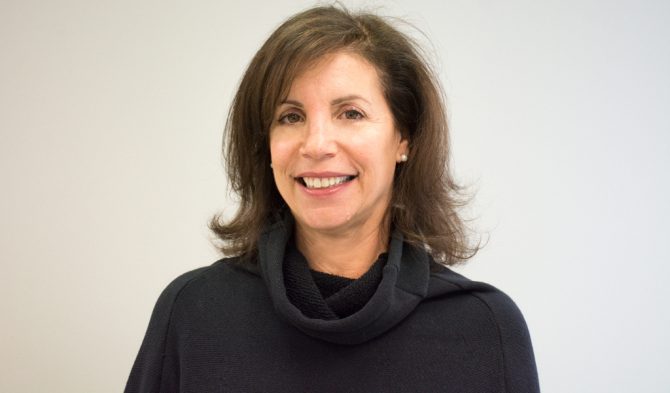
In the weeks leading up to the postponed April 20 start, Shneer said many faculty and staff regularly put in 12- to 16-hour days – working tirelessly alongside the school’s curriculum developer to amend their individual courses to an online environment, while also ensuring all program outcomes could still be met.
“The amount of meetings and discussions and collaboration of ideas from the faculty and from the program directors about how this was actually going to work, it was intense,” she added.
“Faculty had maybe three weeks to get this up, done and finished, with some tweaking along the way. But to overhaul all of these programs from on-campus to online was unbelievable.”
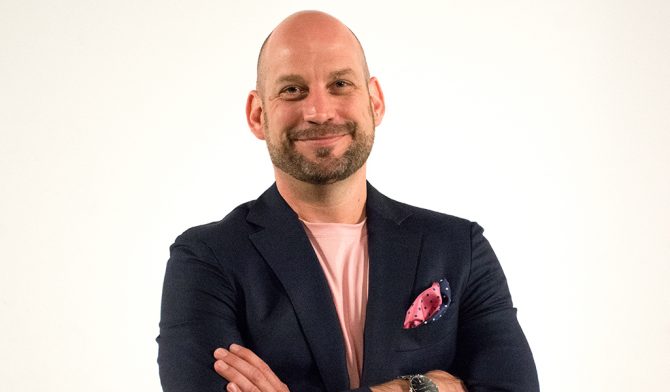
Andrew Barnsley, Toronto Film School’s Executive Producer in Residence, was likewise laudatory in his praise of colleagues for their swift response to the pandemic measures.
“Toronto Film School moved very quickly to pivot towards an online, self-isolation model…” remarked the Emmy-nominated executive producer of Schitt’s Creek.
“The whole way the curriculum has shifted, the way that the instructors and faculty are engaging with students – if you think about how quickly this all happened, it’s very remarkable.”
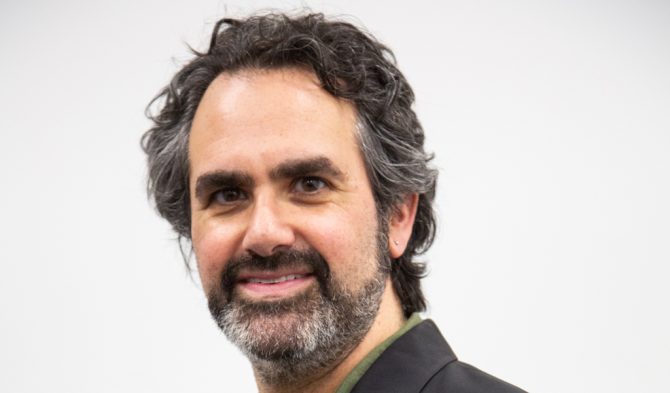
For Hart Massey, the transition process was a time of inspired creativity – thanks, in large part, to Toronto Film School’s “brilliant” team of instructors, who worked relentlessly to ensure their ability to continue delivering the same level of instruction online as they’re known for administering in the classroom.
“I believe that when you hit a point of necessity, then you have to start being creative and innovative – and that’s what we’re all about. TFS has always been about being innovative and cutting edge,” said Massey, the longtime director of TFS’s Acting for Film, TV & the Theatre program.
“We’re creating something that is totally innovative and totally new, while incorporating all the elements from the program, and courses from the program, and all the incredible instructors from the program into something we can bring to you on your doorstep.”
While all that behind-the-scenes work was underway in preparation for the April 20 online launch to the Spring Term, Toronto Film School staff and faculty simultaneously sought out ways in which to keep students connected with the school throughout their extended Spring break.
On April 2 alone, Toronto Film School launched at total of 17 live Zoom sessions designed to both engage and inform it students – many of them specific to each individual program and term.
And that was just the beginning of what would become an ambitious campaign of daily touchpoint webinars.
“We knew that everybody was anxious trying to figure this all out…so, the webinars were, in many cases, informative: Program directors saying, ‘Okay, this is what it’s going to look like, this is how the courses are going to be approached,’” Shneer explained, noting that, in total, Toronto Film School hosted more than 60 such live sessions between April 2 and April 20.
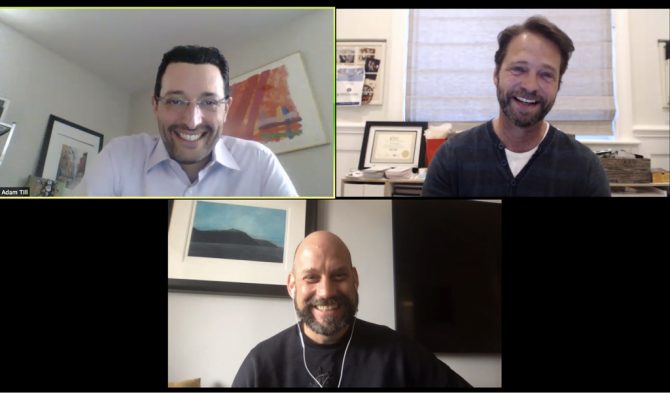
Another exciting initiative launched during students’ extended Spring break was the In Conversation speaker series.
Designed to inspire and engage, the In Conversation Zoom events have allowed students the opportunity to hear directly from a growing list of award-winning filmmakers, writers, actors and comedians – including Academy Award-nominated filmmaker Atom Egoyan, 30-year veteran stand-up comedian Caroline Rhea, Oscar- and Golden Globe-nominated writer and actor Nia Vardalos, and teen-heartthrob-turned-award-winning-director Jason Priestley.
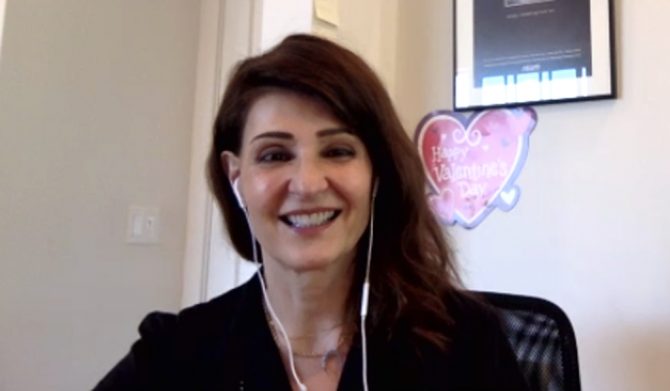
“The In Conversation series…came out of brainstorming with staff, administration and faculty about ways we could enhance the student experience during this time of self-isolation during the COVID pandemic,” said Barnsley, who co-hosts the 90-minute events alongside Adam Till, director of the Writing for Film & Television program.
“The feedback I’ve been receiving from students on this series has been very positive. You get the students who are just big fans of the talent we’ve brought into these conversations, but you also get students who are really inspired by the stories that these people have been able to share – their personal journeys of what it takes and the tools that they used along the way.”
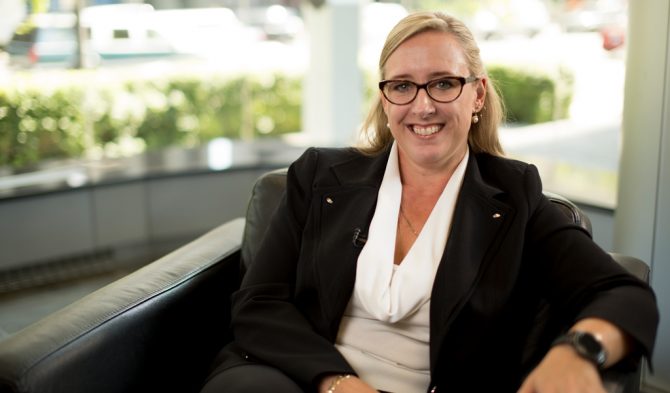
On the mental health and wellness side of things, Dr. Deirdre Pickerell, the Dean of Student Success, and her team have been likewise hard at work rolling out a series of carefully curated resources – from podcasts and YouTube videos, to tip sheets and infographics, to a newly launched Ask An Expert webinar – all aimed at helping students and staff navigate the COVID-19 crisis.
“We’re taking the approach of sharing resources that will help students with their mental health and wellness,” Pickerell said of her team’s recently launched #TFS_CARES campaign.
“That means not only sharing really cool content that we’re finding, but also creating content that we think will be helpful for students…It’s all geared to helping them navigate this really challenging time.”
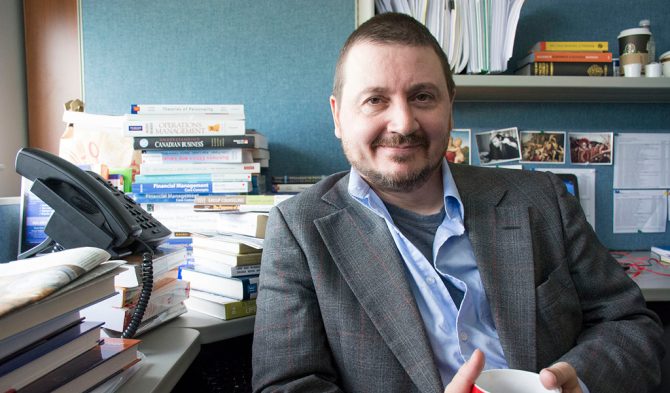
Also hard at work to help support students and faculty through the transition from in-class to online studies has been Paul Graham, University Librarian, and his team of library staff.
Graham said his team has employed a “focused service ethic” to their approach to the crisis – ensuring both awareness of, and access to the multitude of resources Toronto Film School’s online library can provide.
“When you think of a library, people are going to think about maybe e-books and journal articles, but it’s not just that – it also encompasses videos, pictures, news articles, stage plays, screenplay databases, fashion marketing information, film information,” Graham explained, encouraging students and faculty, alike, to seek out his team’s assistance if they have any questions.
“We enjoy when students ask us questions. We enjoy it when faculty has lots of work for us to do…We would welcome any question, any concern – even if we can’t answer it, we’ll find out who can and direct them to the correct department. When in doubt, ask the librarian.”
With all that groundwork laid in advance of April 20, Shneer said the Spring term at Toronto Film School got off to an overwhelmingly positive start.
“We didn’t know what Week 1 would bring…but we were thrilled. Attendance was phenomenal. Engagement was phenomenal,” she said, noting her team’s inboxes were quickly flooded with positive feedback from students like Christian Dalton and Romika Leslie.

“After my first week, I have nothing but positive things to say. I’m so excited to be here,” said Dalton, a first-term Acting student.
“Everyone in my classes has been super involved and no one’s left out. There is a learning curve with technology for some, but it works so well and I can’t say enough good things. I absolutely love it.”
Even Leslie, who admitted be being a bit apprehensive about the shift to online Acting classes, said the enthusiasm of her instructors immediately won her and her classmates over.

“I was a little skeptical, thinking ‘How are we going to keep that same passion?’ But the energy the teachers are going with and the motivation they have (is contagious),” she said.
“They’re very passionate about ‘This is going to work! We’re going to do this!’ So, I’m, like, ‘Alright, I’m with you. Let’s go!’”

Those sentiments were echoed by both Yale Massey and Adam Till, directors of the Film Production and Writing for Film & Television programs, respectively.
“It’s been pretty fascinating for me, just to see everyone coming together and making the most of this situation and trying to stay creative and keep learning,” said Massey.
“Some of the ideas that instructors have had in terms of transitioning their courses online have been fabulous, and the first week is off to a good start. Students are engaged. Students think it’s much more than they thought it was going to be.”
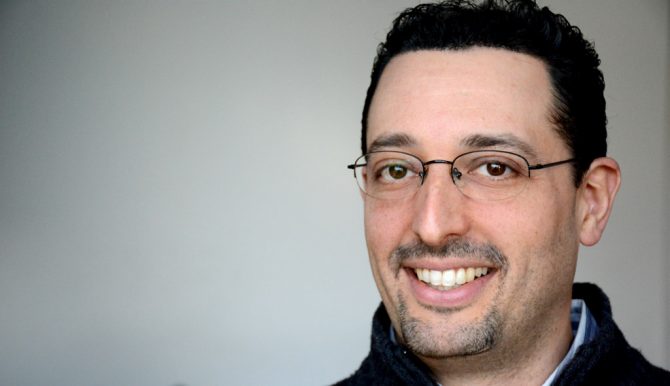
Added Till: “We’ve gotten great feedback from the students so far. I think everyone’s pleasantly surprised at how much we can do (on Zoom) between sharing screens and the breakout rooms, and the hand-raising function. It really does feel like a classroom.”


